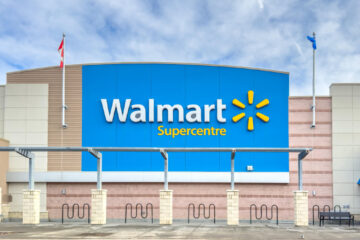Although coffee used to be people’s go-to daily morning pick-me-up, the younger generations no longer reach for the standard cup of Joe.
Energy drinks are the second-most popular dietary supplement consumed by teenagers and young adults in the U.S., behind multivitamins. Their eye-catching packaging, wide flavor selection, and lifestyle-focused marketing have attracted modern consumers by making them feel part of the in-crowd.
💰💸 Don’t miss the move: SIGN UP for TheStreet’s FREE Daily newsletter 💰💸
This industry is growing rapidly in the U.S., reaching $19.2 billion in 2023, yet it’s still projected to grow at a yearly rate of around 8% and be worth approximately $33 billion by 2030.
Globally speaking, the energy drink category is projected to grow 10% from 2024 to 2029.
Related: Dr Pepper makes bold move to claim energy drink crown
With such a profitable product, many companies have invested in creating their own energy drink imprint or acquiring pre-existing energy drink brands to hopefully profit from their popularity.
Guests with Celsius drink at Caribe Royale Orlando.
Douglas P. DeFelice/Getty Images
Celsius to acquire Alani Nu to become the top better-for-you energy drink
Celsius Holdings (CELH) , an American functional beverage company, announced it is acquiring its rival Alani Nu for $1.8 billion, comprising a mix of cash and stock, including $150 million in tax assets. This acquisition aims to unite two growing brands in the energy drink sector to become the top company for better-for-you energy drinks.
“We believe Celsius can unlock key growth opportunities for Alani Nu and are excited to partner with John and the Celsius team as they continue to disrupt and grow the functional beverage space,” said Congo Brands Co-CEO Max Clemons.
Related: Olipop makes major move to become a billion-dollar company
According to the agreement, once the deal is officially sealed, Alani Nu, which operates under Congo Brands, will transition operations to Celsius with the help of key Congo Brands leadership team members, who will serve as advisors to ensure smooth business operations.
Alani Nu’s pre-established and continuously growing consumer base, combined with Celsius’s, is expected to drive incremental category growth for both brands as a whole through brand awareness, leveraging their positioning in the category.
With this acquisition, which is to be finalized in the second quarter of 2025, Celsius expects to drive approximately $2 billion in combined sales since both brands target a similar audience.
Celsius and Alani Nu will combine strategies to leverage growth and reach
Although Alani Nu was founded in 2018, in just seven years, it has delivered sales growth of 78% year over year for the last four weeks ending Jan. 26, 2025, according to Circana.
This energy drink brand targets a younger female demographic focused on health and wellness, which complements Celsius’ existing portfolio of better-for-you functional beverages.
Alani Nu’s brand voice is channeled through every aspect of its brand, even in its packaging, which is fun, colorful, and attractive to its central community of Millennial and Gen Z consumers. Its business strategy is the definition of a modern brand since it uses social media and partners with health and wellness influencers to promote its products.
More Retail News:
Popular restaurant chain makes major move to beef up businessPopular restaurant chain is moving its iconic headquarters amid troublesStarbucks makes big change bespoke coffee lovers will hate
“When we look at Alani, and you look at where it is in its growth cycle and distribution, it’s really about, you know, almost where Celsius was two years ago,” said Celsius CEO John Fieldly in an earnings call.
Celcius was founded over 20 years ago.
According to Celsius’ second-quarter earnings for 2024, retail sales increased 22% year over year. However, total revenue declined by 4%, and North American revenue was down 6%.
With Celcius’ years of experience in the beverage business and Alani Nu’s innovative perspective and community, this combined platform aims to become a leading company in the growing better-for-you energy beverage sector.
“Being a single brand in the energy category, competing against some of the larger players, is a disadvantage because you’re not able to leverage pricing promotional strategies between brands,” said Fieldly in an interview at the Consumer Analyst Group of New York conference. “This allows us to compete at that higher level to really continue to drive our growth and share,” he added.
Related: Veteran fund manager issues dire S&P 500 warning for 2025

